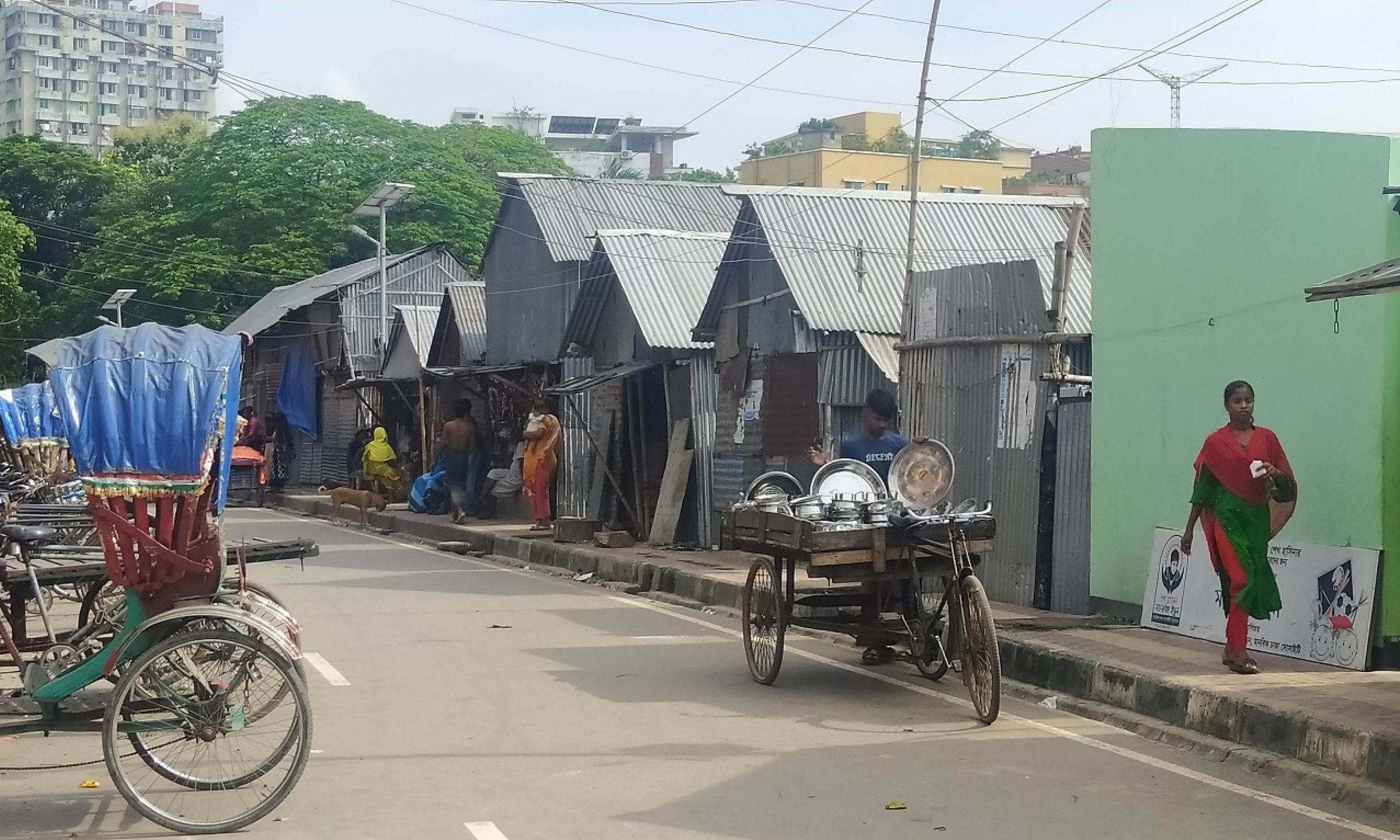
Dhaka - Women in Mobile Livelihoods
In Dhaka, women rarely opt to work as drivers of motorised or non motorised vehicles. We found that most women only travel for work or for household errands and invariably their travel behaviours are determined by their care duties towards their families and depends on getting permission from male household members. Safety on the road, whether while crossing foot bridges or harassment by men are their most important concerns.
Few women rent out rickshaws from their homes or designated garage spaces but earn much less than their male counter parts. Often the rickshaws rented by these women become targets of rickshaw syndicates and police when they get stolen while their drivers stop for a tea break or are charged a fine by the police, which they have to help pay out. They get involved in these mobile livelihoods as men in their household are linked to it in some capacity.
Other women in the households of mobility workers rarely ever step out for income-generating work. As their husbands’ jobs involve travel, they must take on all the household work. Previously, dropping children to school was an outlet to travel but this has stopped since the pandemic. Few worked as housemaids for incomes between BDT 1200 ($14) to BDT 1400 ($16) but most lost their jobs during the pandemic.
To cope with the income loss, women expected to take a loan or try to secure a job as a housemaid. However, they would have to send their children to the village or wait until schools reopened to take on these jobs.

Aklima Begum, Fojila Begum and Fatema Begum are owners of rickshaw garages.

Aklima Begum, Fojila Begum and Fatema Begum are owners of rickshaw garages.
Aklima Begum from Sadek Khan, Mohammadpur and Fojila Begum and Fatema Begum from Pora Basti, Kallyanpur own around 5-6 rickshaws which they rent out from garage spaces near their homes. Their income on average is BDT 6000 ($69), and Fatema and Aklima have tried to supplement their income by running a tea shop near their garage. These women started renting rickshaws as their husbands are engaged in mobile livelihoods themselves. Fojila Begum’s husband and sons, for instance drive private cars.
Called “Khalla” by other residents of the settlement, she is a respected figure and leverages this status to manage the business and the various stakeholders involved.
Aklima’s husband makes rickshaws and therefore, she rents rickshaws while supporting her husband at the workshop. Fatema, sadly inherited this trade after her husband died and has sold most rickshaws while relying mainly on the tea shop for her income. Now in their early 50s these women moved to Dhaka around 30 years ago.
The pandemic was a difficult time, as income stopped for 5 to 6 months. They secured a government cash stipend of BDT 1500 ($17), which helped them but 5 kgs of rice. Lately, income has dropped as earlier they could charge BDT 100 ($1) per day for a rickshaw, but now they can only get BDT 50 to 60 ($0.58-$0.69) per day with fewer rickshaws going out on the streets. They have to warn their drivers to be careful as rickshaws get confiscated and then they have to buy new license plate. License plates still cost the same, around BDT 70 per rickshaw ($0.81) for 3 months or BDT 150 ($1.74) per rickshaw for 6 months. Following the pandemic, the Dhaka South City Corporation started licensing mechanical rickshaws, which would really help their business.
As they live close to the garage, their days are spent mostly in the tea shop or the garage with a lot of “idle time” when they speak to their neighbours. This is of course an important activity for garage owners, as they make their business connections like getting to know who is looking for a job or solving the day to day issues drivers face. Although their income have dropped by 50%, these women do not want to change their livelihood and prefer a business loan to help them get by the downturn.
